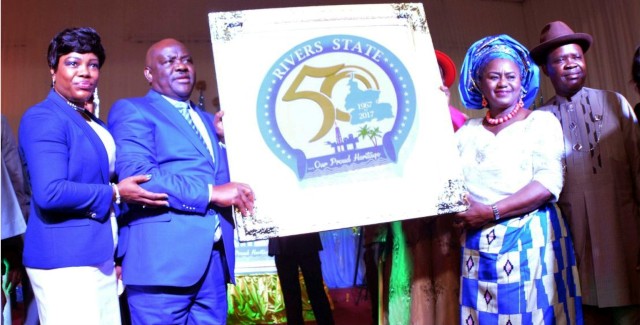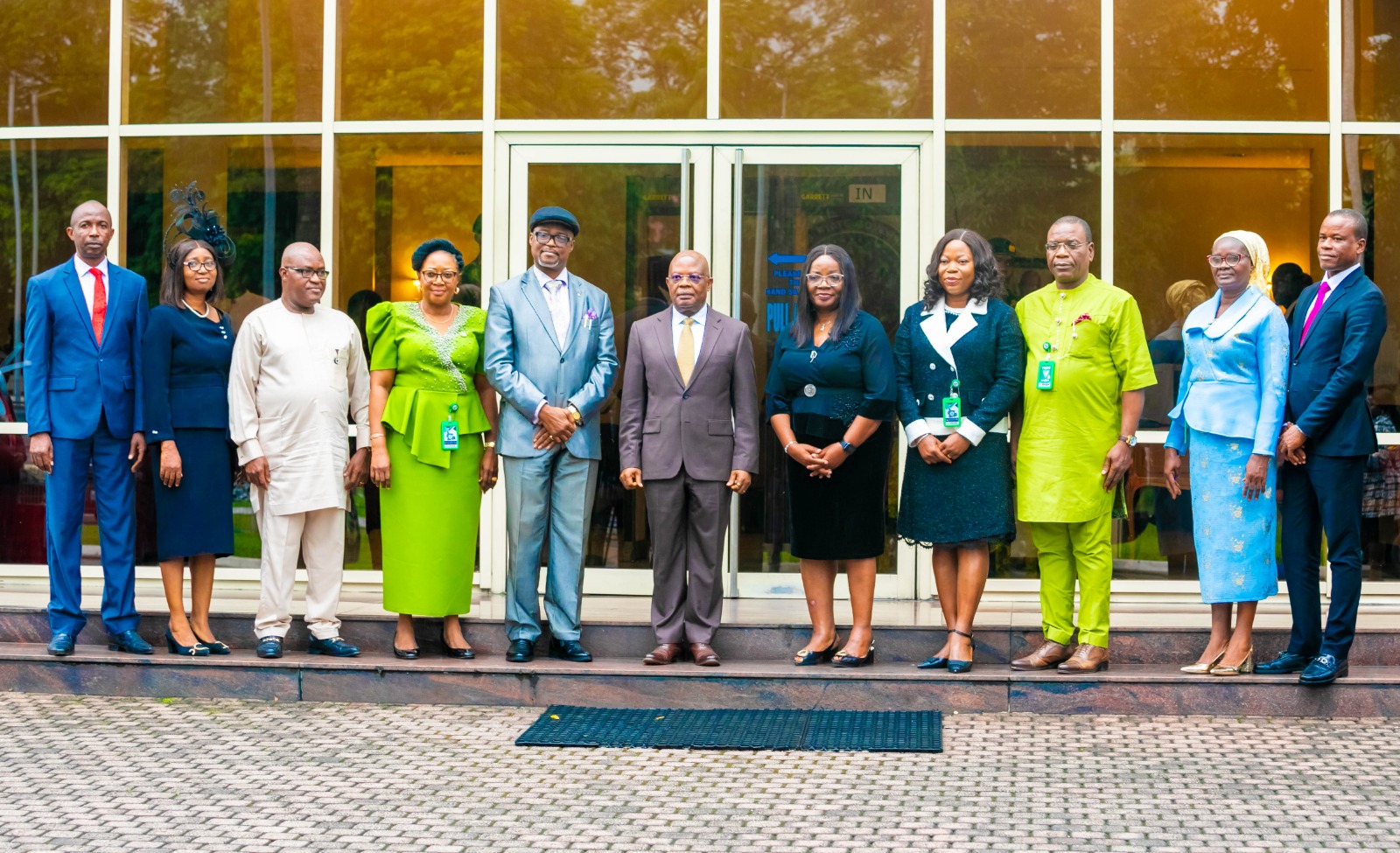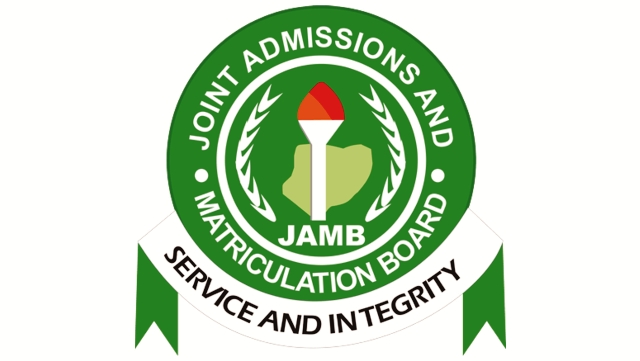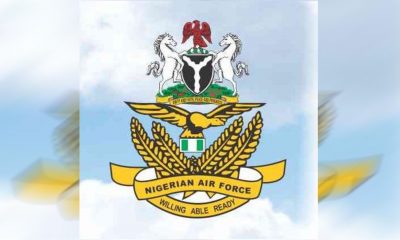Featured
Wike Bags Three Awards …One Year After Supreme Court Verdict

It is exactly one year today after the Supreme Court upheld the election of Rivers State Governor, Chief Nyesom Wike
The apex court had delivered the judgement on January 27 but said it would explain the reasons for it on February 12, 2016.
In arriving at the ruling, it set aside the judgments of the River State Governorship Election Tribunal and the Court of Appeal, which nullified Wike’s election.
Justice Kudirat Kekere-Ekun, who read the unanimous judgement, explained that the inability of the tribunal to be properly constituted during the determination of the matter amounted to lack of fair hearing of the governor’s case.
She said the action of the tribunal was a good ground to set aside the entire proceedings before it, but that since it was an election matter which was time-bound, according to Section 289 (6) and (7) of the Constitution, it was necessary to consider the appeal according to its merit.
On the alleged violation of documents tendered at the tribunal and the appeal court, she said the function of the card reader, though quite commendable in the conduct of the 2015 elections, is solely to authenticate the owner of the voter’s card and prevent multiple voting by a single voter.
She said the card reader cannot replace the voters register, recognised by the constitution.
Kekere-Ekun further said the 49th prosecution witness (PW), who is an assistant director of information communication and technology at the Independent National Electoral Commission, acknowledged that the report she had testified to, was prepared by a certain Mrs. Nnena, a staff of her unit.
She added that the witness also told the tribunal during cross examination that she was not in Rivers State during the election and did not examine the card reader after the exercise.
She said since the witness did not take part in any stage of the accreditation of voters, she was not in any position to testify as to how the card reader functioned during the election.
“The position of the law is that there is a difference between admissibility (relevance) and probative value (proof) to be attached to the said evidence,” Kekere-Ekun said.
“Where the maker of a document is not called to testify, the document should not be accorded probative value, not withstanding its status as a certified copy document.”
The justice further stated that the testimony of PW49 is evidence to the fact that exhibit A9 could be a conclusive proof of the number of accredited voters at the election.
Kekere-Ekun said witnesses at the tribunal had testified that where the card reader failed to read a voter’s PVC, incident forms were used, but that none of the forms were tendered by the first and second respondent.
She also noted that out of the 11 voters registers tendered for 11 out of 23 local government areas of the state, no attempt was made to link them to exhibits A9, which contained the number of accredited voters.
She added that documents before the court proved that the number of accredited voters stated in forms ECA8 was different from the number stated in exhibit A9.
This, she said, was grossly inadequate in proving non-compliance, which is expected to have been done, poling units by poling units, according to the provision of the constitution.
She said, “Section 139 of the Constitution states that where a petitioner complains of non-compliance with the provisions of the act, he has an onerous task of proving it, poling unit by poling unit, ward by ward and the standard of proof is on a balance of probabilities.”
Meanwhile, Wike yesterday received the Authority Newspaper’s Governor of the Year award in Abuja.
Aside that, the governor also got awards from The Sun and Independent Newspapers as “Governor of the Year.”
The award was received on his behalf by his Deputy, Dr Ipalibo Banigo-Harry, who thanked the management of the newspaper for the award, saying the recognition is significant as the state celebrates it golden jubilee.
Harry-Banigo assured that the governor is poised to do more in pursuance of his vision for a better and prosperous Rivers State.
Featured
Rivers A Strategic Hub for Nigeria’s Blue Economy -Ibas …Calls For Innovation-Driven Solutions

The Administrator of Rivers State, Vice Admiral (Rtd.) Ibok-Ete Ibas, has emphasized the need for innovation-driven strategies, strategic partnerships, and firm policy implementation to fully harness the vast potential of the blue economy.
Speaking during a courtesy visit by participants of Study Group 7 of the Executive Course 47 from the National Institute for Policy and Strategic Studies (NIPSS) at Government House, Port Harcourt, on Monday, Ibas highlighted the importance of diversifying Nigeria’s economy beyond oil by leveraging maritime resources to create jobs, enhance food security, strengthen climate resilience, and generate sustainable revenue.
The Administrator, according to a statement by his Senior Special Adviser on Media, Hector Igbikiowubo, noted that with coordinated efforts and innovative solutions, the blue economy could serve as a catalyst for inclusive growth, economic stability, and long-term environmental sustainability.
“It is estimated that a fully developed blue economy could generate over $296 million annually for Nigeria, spanning fisheries, shipping and logistics, marine tourism, offshore renewable energy, aquaculture, biotechnology, and coastal infrastructure,” he stated.
“We must transition from extractive practices to regenerative, inclusive, and innovation-driven solutions. This requires political cohesion, intergovernmental collaboration, robust infrastructure, and institutional capacity—all of which must be pursued with urgency and intentionality,” he added.
Ibas urged sub-national governments, particularly coastal states, to domesticate the national blue economy framework and develop tailored strategies that reflect their comparative advantages.
He stressed that such efforts must be guided by disciplined planning, regulation, and investment to maximize the sector’s potential.
Highlighting Rivers State’s pivotal role, the Administrator outlined its strategic advantages as follows:
•Nearly 30% of Nigeria’s total coastline (approximately 853km)
•Over 40% of Nigeria’s crude oil and gas output
•More than 33% of the country’s GDP and foreign exchange earnings
•416 of Nigeria’s 1,201 oil wells, many located in marine environments
•Two of Nigeria’s largest seaports, two oil refineries, and the Nigerian Liquefied Natural Gas (NLNG) terminal in Bonny Island—one of Africa’s most advanced gas facilities
Despite these opportunities, Ibas acknowledged challenges such as pollution, coastal erosion, illegal oil refining, unregulated fishing, inadequate infrastructure, and maritime insecurity.
He reaffirmed his administration’s commitment to institutional reforms, coastal zone management, and inter-agency collaboration to build a governance structure that supports a sustainable blue economy.
“Sustainability must be embedded in our development models from the outset, not as an afterthought. We are actively exploring partnerships in maritime education, aquaculture development, port modernization, and renewable ocean energy. We welcome knowledge-sharing engagements like this to refine our strategies and enhance implementation,” he said.
He urged the NIPSS delegation to ensure their findings translate into actionable recommendations that address the sector’s challenges.
Leader of the delegation, Vice Admiral A.A. Mustapha, explained that the visit aligns with their strategic institutional tour mandate on the 2025 theme: “Blue Economy and Sustainable Development in Nigeria: Issues, Challenges, and Opportunities.”
The group is engaging stakeholders to deepen understanding of policy efforts and institutional roles in advancing sustainable development through the blue economy.
Featured
INEC To Unveil New Party Registration Portal As Applications Hit 129

The Independent National Electoral Commission (INEC) has announced that it has now received a total of 129 applications from associations seeking registration as political parties.
The update was provided during the commission’s regular weekly meeting held in Abuja, yesterday.
According to a statement signed by the National Commissioner and Chairman of the Information and Voter Education Committee, Sam Olumekun, seven new applications were submitted within the past week, adding to the previous number.
“At its regular weekly meeting held today, Thursday 10th July 2025, the commission received a further update on additional requests from associations seeking registration as political parties.
“Since last week, seven more applications have been received, bringing the total number so far to 129. All the requests are being processed,” the commission stated.
The commission revealed the introduction of a new digital platform for political party registration. The platform is part of the Party Financial Reporting and Auditing System and aims to streamline the registration process.
Olumekun disclosed that final testing of the portal would be completed within the next week.
“INEC also plans to release comprehensive guidelines to help associations file their applications using the new system.
“Unlike the manual method used in previous registration, the Commission is introducing a political party registration portal, which is a module in our Party Financial Reporting and Auditing System.
“This will make the process faster and seamless. In the next week, the commission will conclude the final testing of the portal before deployment.
“Thereafter, the next step for associations that meet the requirements to proceed to the application stage will be announced. The commission will also issue guidelines to facilitate the filing of applications using the PFRAS,” the statement added.
In the meantime, the list of new associations that have submitted applications has been made available to the public on INEC’s website and other official platforms.
Featured
Tinubu Signs Four Tax Reform Bills Into Law …Says Nigeria Open For Business

President Bola Tinubu yesterday signed into law four tax reform bills aimed at transforming Nigeria’s fiscal and revenue framework.
The four bills include: the Nigeria Tax Bill, the Nigeria Tax Administration Bill, the Nigeria Revenue Service (Establishment) Bill, and the Joint Revenue Board (Establishment) Bill.
They were passed by the National Assembly after months of consultations with various interest groups and stakeholders.
The ceremony took place at the Presidential Villa, yesterday.
The ceremony was witnessed by the leadership of the National Assembly and some legislators, governors, ministers, and aides of the President.
The presidency had earlier stated that the laws would transform tax administration in the country, increase revenue generation, improve the business environment, and give a boost to domestic and foreign investments.
“When the new tax laws become operational, they are expected to significantly transform tax administration in the country, leading to increased revenue generation, improved business environment, and a boost in domestic and foreign investments,” Special Adviser to the President on Media, Bayo Onanuga said on Wednesday.
Before the signing of the four bills, President Tinubu had earlier yesterday, said the tax reform bills will reset Nigeria’s economic trajectory and simplify its complex fiscal landscape.
Announcing the development via his official X handle, yesterday, the President declared, “In a few hours, I will sign four landmark tax reform bills into law, ushering in a bold new era of economic governance in our country.”
Tinubu made a call to investors and citizens alike, saying, “Let the world know that Nigeria is open for business, and this time, everyone has a fair shot.”
He described the bills as not just technical adjustments but a direct intervention to ease burdens on struggling Nigerians.
“These reforms go beyond streamlining tax codes. They deliver the first major, pro-people tax cuts in a generation, targeted relief for low-income earners, small businesses, and families working hard to make ends meet,” Tinubu wrote.
According to the President, “They will unify our fragmented tax system, eliminate wasteful duplications, cut red tape, restore investor confidence, and entrench transparency and coordination at every level.”
He added that the long-standing burden of Nigeria’s tax structure had unfairly weighed down the vulnerable while enabling inefficiency.
The tax reforms, first introduced in October 2024, were part of Tinubu’s post-subsidy-removal recovery plan, aimed at expanding revenue without stifling productivity.
However, the bills faced turbulence at the National Assembly and amongst some state governors who rejected its passing in 2024.
At the NASS, the bills sparked heated debate, particularly around the revenue-sharing structure, which governors from the North opposed.
They warned that a shift toward derivation-based allocations, especially with VAT, could tilt fiscal balance in favour of southern states with stronger consumption bases.
After prolonged dialogue, the VAT rate remained at 7.5 per cent, and a new exemption was introduced to shield minimum wage earners from personal income tax.
By May 2025, the National Assembly passed the harmonised versions with broad support, driven in part by pressure from economic stakeholders and international observers who welcomed the clarity and efficiency the reforms promised.
In his tweet, Tinubu stressed that this is just the beginning of Nigeria’s tax evolution.
“We are laying the foundation for a tax regime that is fair, transparent, and fit for a modern, ambitious Nigeria.
“A tax regime that rewards enterprise, protects the vulnerable, and mobilises revenue without punishing productivity,” he stated.
He further acknowledged the contributions of the Presidential Fiscal Policy and Tax Reform Committee, the National Assembly, and Nigeria’s subnational governments.
The President added, “We are not just signing tax bills but rewriting the social contract.
“We are not there yet, but we are firmly on the road.”
-
Politics19 hours ago
Alleged Money Laundering: Fayose Has No Case To Answer, Court Tells EFCC
-

 Politics15 hours ago
Politics15 hours agoAtiku Quits PDP, Says Decision Heartbreaking
-
Rivers19 hours ago
CDS Urges Communities To Protect Pipelines
-
Politics21 hours ago
Atiku’s Exit No Problem To PDP – Makinde
-

 News17 hours ago
News17 hours agoShettima, Atiku, Obi Attend Buhari’s Fidau Prayer In Daura
-

 News19 hours ago
News19 hours agoJAMB Uncovers 9,469 Fake Admissions In 20 Tertiary Institutions
-

 News19 hours ago
News19 hours agoNAF Disowns Recruitment Adverts, Says It’s Fake
-
Rivers20 hours ago
Okrika Administrator Seeks To Connect Okujagu Ama To National Grid … Donates 30 Life Jackets To Okujagu Ama Boat Drivers

